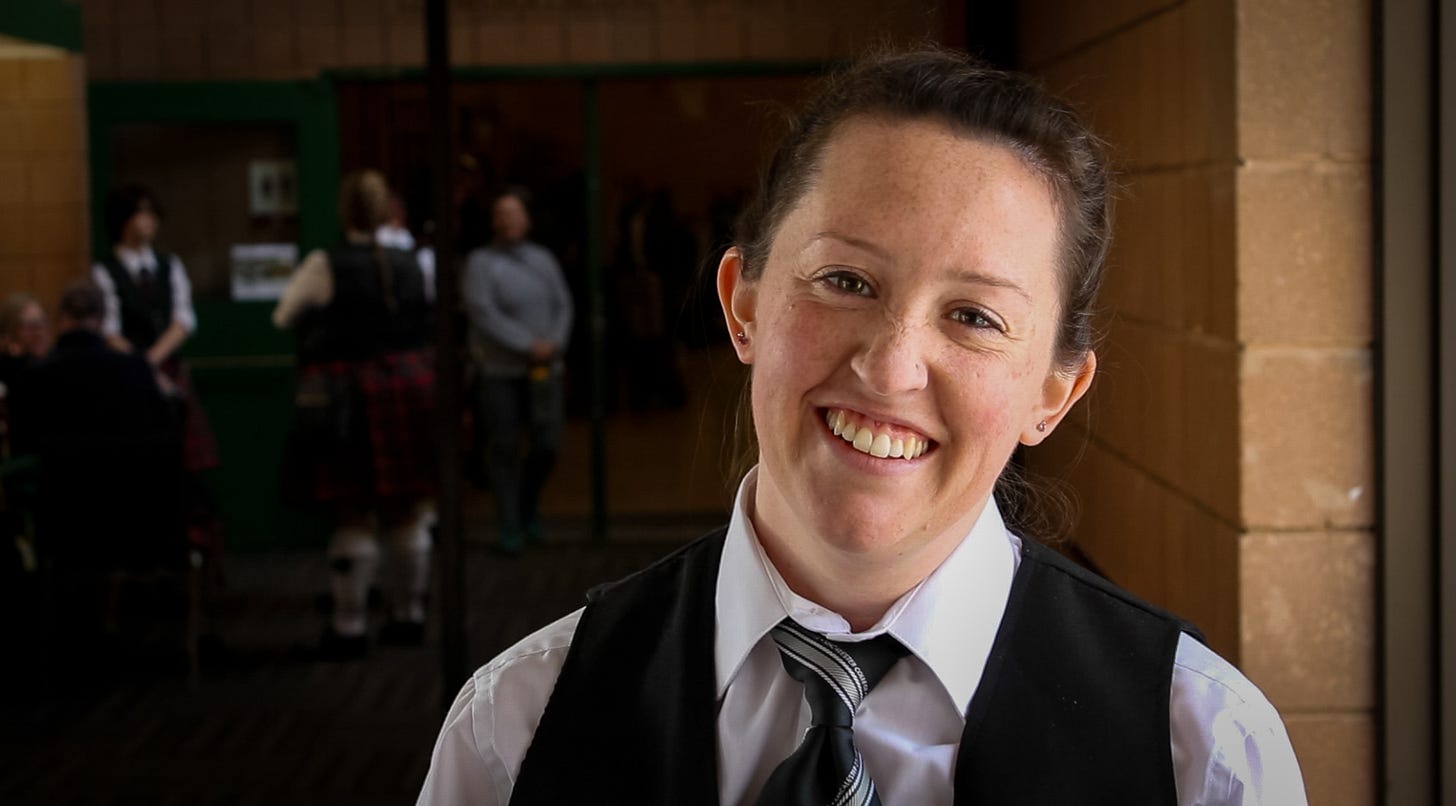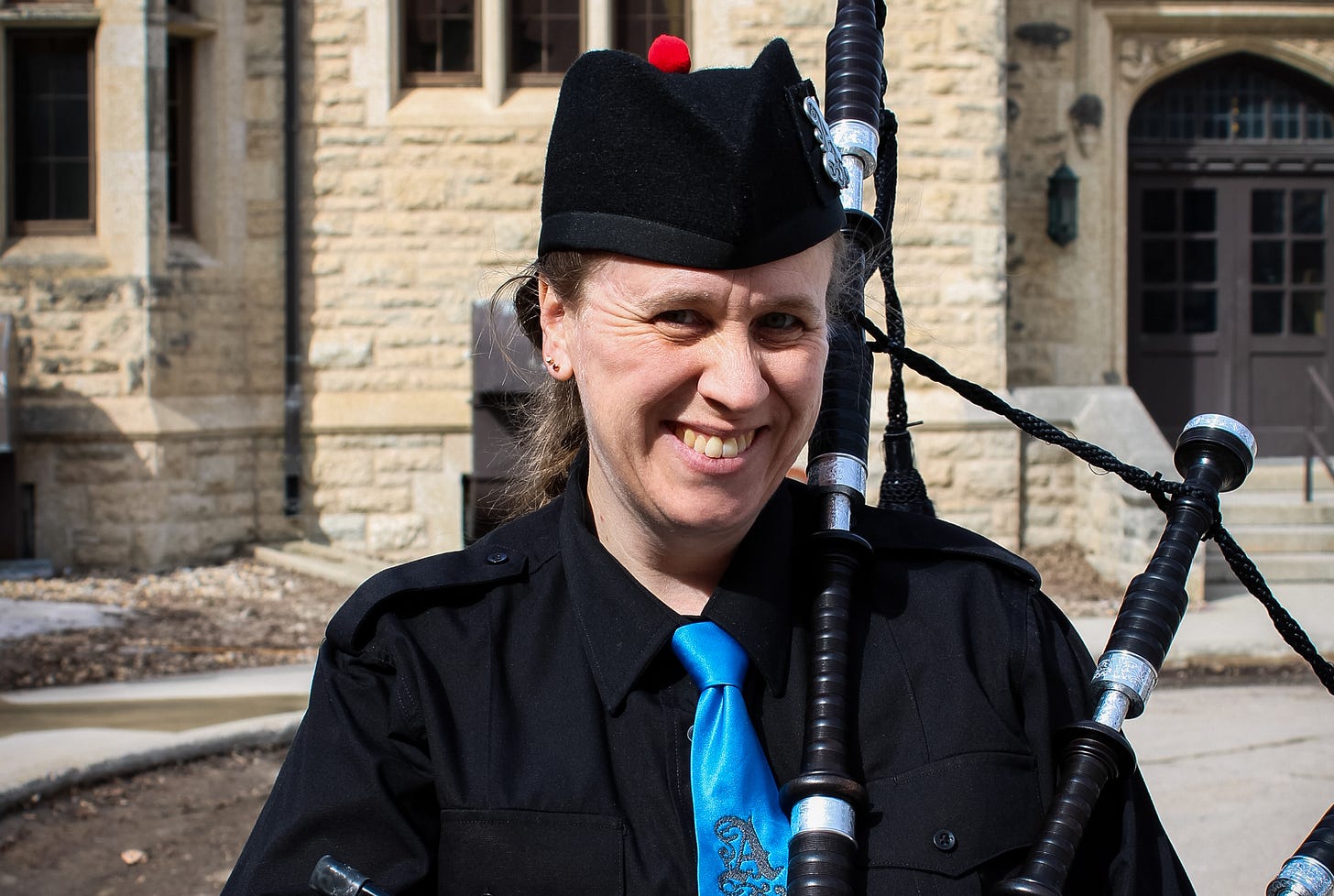Scottish culture runs deep in Winnipeg
Hundreds of performers, spectators, judges, and others gathered for Winnipeg’s 30th annual Scottish Festival
The gym at the Canadian Mennonite University roared with sounds of bagpipers, drummers, and chatter as everyone prepared for the competitions to come.
Hundreds of solo musicians and group bands played in front of judges on April 6 for the 30th annual Winnipeg Scottish Festival — which is Manitoba's longest-running pipe and drum contest.
“We’re really excited about the number of bands and the number of solo participants that have shown up,” said volunteer and performer, Diane Kotelko.
Small rooms in the university were for solo routines in front of judges — while the larger gym was the central hub for tuning instruments and practicing routines.
The ages of performers ranged from 7 to 70 years old. “Piping and drumming is really a lifetime activity,” Kotelko said.
Not only was she a volunteer — she also participated in three solo competitions during the morning, placing first in one and third in another.
After lunchtime, the gym was transformed into an auditorium for the band performances.

Most of the performing bands were local to Manitoba — but others came from Regina and Saskatoon, and two were from Minnesota.
One of the Minnesotan bands was the Macalester College Pipe Band. Allie Lewis is one of the tenor drummers with the band. She said she loves performing and sharing her culture.
“It’s just a great addition to the community,” Lewis said.
She grew up entrenched in Scottish culture through Highland dancing and now playing in a pipe band. Her grandmother emigrated from Scotland, and she still has family there.
“I’m very connected through my family and my ancestors as well,” she said.
Lewis explained that each pipe band consists of bagpipers, side drummers, multiple tenor drummers, and a single bass drummer who plays in the centre.
She said heritage shouldn’t stop anyone from exploring Scottish traditional music and culture.
“Anybody can play bagpipes — anybody can be in a pipe band,” she said.

“What I love about this music is the inclusivity of it. It doesn't matter what country you're from — it's an instrument,” Amanda Todoschuk said about bagpiping.
Todoschuk is a bagpiper for the St. Andrew’s Pipe Band. They wear the Earl of St. Andrews tartan — a blue and white kilt.
She lives in Kenora and commutes to Winnipeg each week for band practice. She went to the Winnipeg Scottish Festival to play in solo competitions, as well as a group competition in the afternoon.
“If you love the music, you can play it with anybody... It's so neat,” she said.

Todoschuk told the story of how she began playing:
One night in Kenora, she took her children for a walk, and they heard the sounds of bagpipes along the riverfront.
“We went to listen to the band. And I just walked up to a pretty cool-looking gentleman and said,
“Oh my goodness, thank you. I love listening to it. I love the sound of the bagpipes.”
And he said to me,
“Oh, do you want to learn?”
And I think I surprised both of us when I said “Yes.”
And so, we were scrambling around looking for a pencil and paper and he gave me his phone number. And about a week later, I called him and said,
“Yeah, I'd like to give this a try.”
So, I started on chanter.”
Beginner bagpipers start on a learner instrument called a chanter — which is a smaller part of the bagpipes. It’s similar to a recorder as it’s a pipe you blow air into with finger holes for tunes.
After this, learners advance to playing on actual pipes.

“You practice your tunes for as long as you wish with your teacher… And you start all over again because now there are about 47 other things that you need to think about,” Todoschuk said laughing.
Bagpipers also learn how to march while playing and performing. “It’s tons of multitasking. A lot of muscle memory,” she said.
Todoschuk’s advice to someone just starting out is to be patient.
“Listen to your teacher — get a good teacher. It's not all about winning. It's all about the journey,” she said.
Kathleen Hunt, the Registrar for the festival, said this year marked a significant 40 per cent increase in solo competitions and a 25 per cent increase in bands registered.
“Keeping the traditions alive and sharing our culture with folks of all backgrounds is very important to me,” Hunt said.
She doesn’t play in a pipe band but said she has strong ties to her Scottish roots. “For me, this is truly a labour of love,” she said.
The festival’s committee is anticipating participation numbers to increase in its 31st year. The committee will meet within the next month to debrief on this year’s event and work on planning the next.


